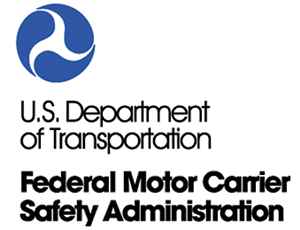Senior Reporter
Court Says Pre-employment Screening Data Lawsuits Must Show 'Concrete Damage'

A federal appeals court has ruled that truck drivers cannot be awarded legal damages merely because there is inaccurate information about their safety violations and crash data listed in the federal Pre-employment Screening Program database.
The U.S. Court of Appeals for the District of Columbia decision last month came in a six-year-old lawsuit involving five drivers seeking damages for inaccuracies in the Federal Motor Carrier Safety Administration’s database that provides employers with reports containing crash data from the previous five years and inspection data from the previous three years.

The appeals court sent two of the drivers back to the lower court on remand to seek monetary damages because some of the inaccurate data was disseminated to prospective employers, but said the other three drivers did not suffer “injury sufficiently concrete to confer standing to seek damages.”
Maintaining the data contained in the Motor Carrier Management Information System database used for the Pre-employment Screening Program requires collaboration among state and federal authorities, the appeals court said.
“States serve as the primary reporters of information: they are obligated by statute to collect and report accurate, complete and timely motor carrier safety data,” the court said. “For its part, the department [FMCSA] must ensure, to the maximum extent practical that all the data is complete, timely and accurate, and prescribe technical and operational standards to ensure uniform, timely and accurate information collection and reporting by the states.”
The court said that motor carriers, shippers and other firms looking to hire truck drivers can access the driver information in the database.
As a further way to guarantee the accuracy of the database, FMCSA established the DataQs web-based dispute resolution procedure to allow drivers to challenge data.
The lawsuit was filed by the Owner-Operator Independent Drivers Association on behalf of drivers Fred Weaver, Klint Mowrer, Mark Moody, Brian Kelley and Robert Lohmeier. It established that the drivers all challenged their situations in court — one driver was found not guilty and the others had their citations dismissed. Four of the five drivers asked that their inaccurate records be removed from the database, but the requests were rejected by the agency, according to court documents.
At the federal district court level, FMCSA argued that the lawsuit lacked jurisdiction and that the drivers had failed to prove they were damaged. The lower court dismissed the lawsuit on a summary judgment motion by FMCSA attorneys.
The appeals court said the Supreme Court standard requires drivers to prove “concrete injury,” not just a procedural violation.
“To begin with, the drivers have identified no historical or common-law analog where the mere existence of inaccurate information, absent dissemination, amounts to concrete injury,” the appeals court wrote.
“To be sure, it is possible that the mere existence of inaccurate information in a government database could cause concrete harm depending on how that information is to be used. We conclude only that, under the specific circumstances of this case, the drivers have failed to show standing for all of the relief they seek.”
“OOIDA is pleased that the D.C. Circuit has agreed with its position that FMCSA, and not the states, bears responsibility for the accuracy of driver safety records available for dissemination from its databases, and has recognized the real world damage that these inaccurate records pose to the employment prospects for drivers,” OOIDA said in a statement. “OOIDA is evaluating the opinion to determine its options on remand.”




